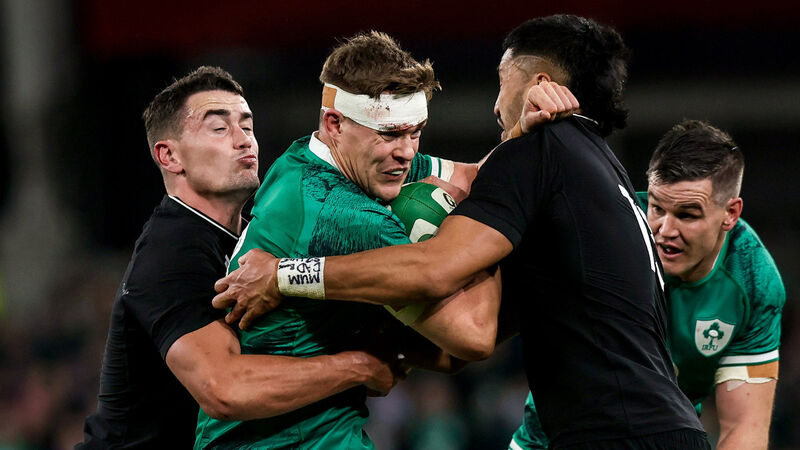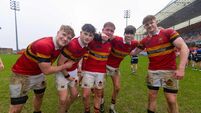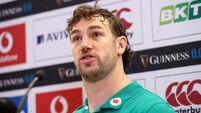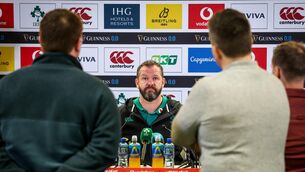Peter Jackson: Was this New Zealand result one of Ireland's best ever?

Ireland’s Garry Ringrose is tackled by Will Jordan and Akira Ioane of New Zealand.
During one of his many lightbulb moments, Thomas Edison came across an English proverb proclaiming that everything comes to him who waits. It made him stop and think.
After due consideration, the American inventor decided that a pragmatic twist would give the words more meaning so he rearranged them to read: “Everything comes to him who hustles while he waits.”













